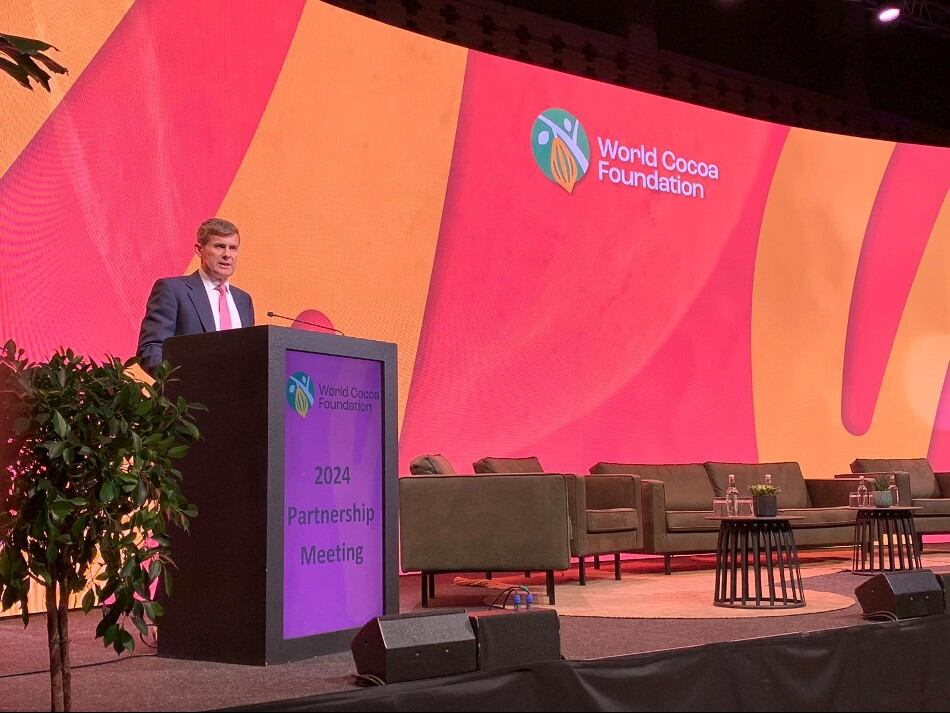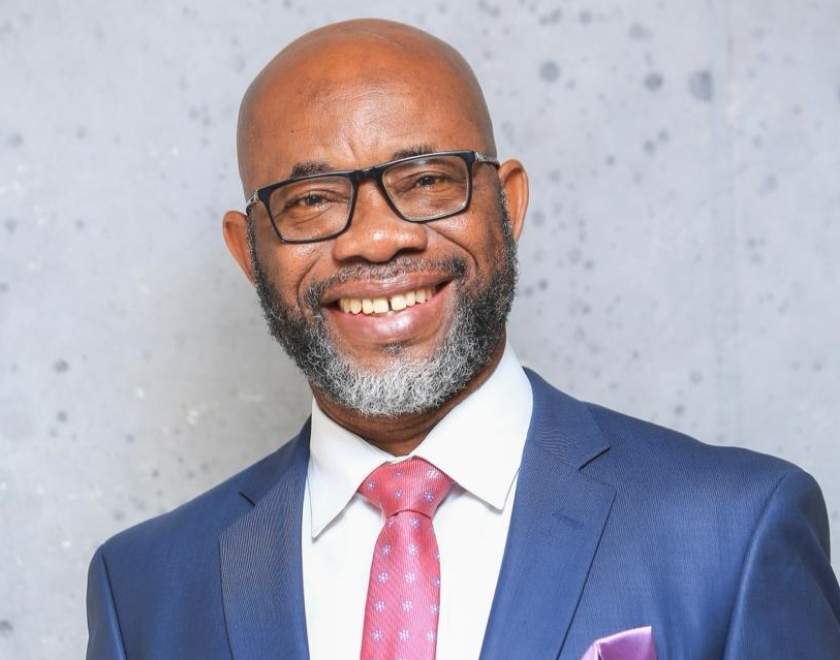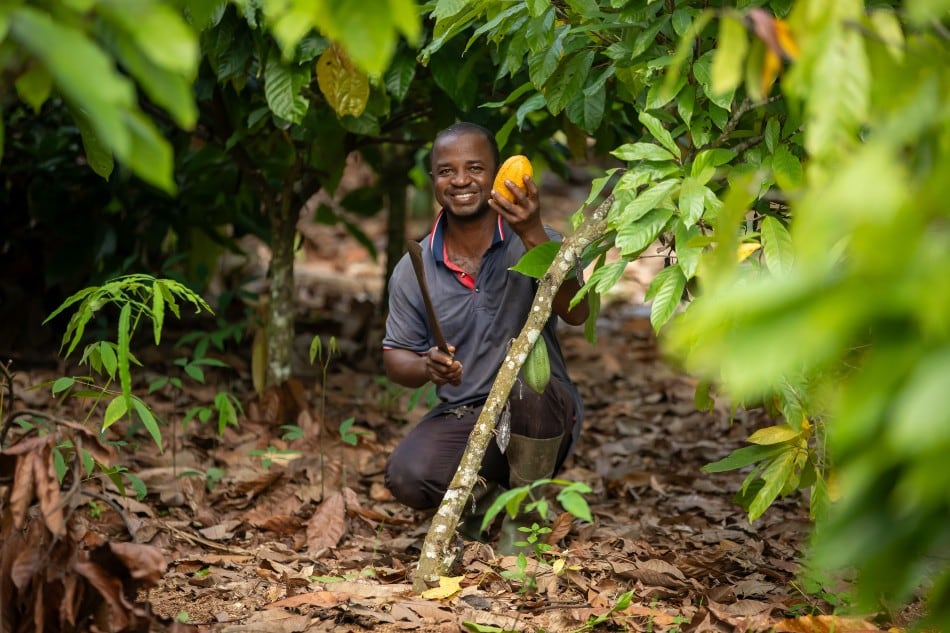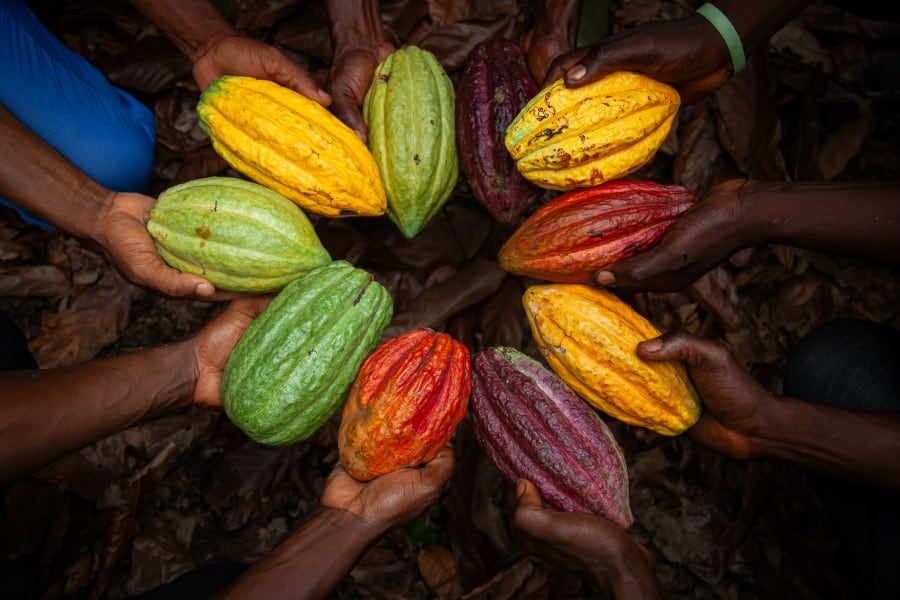With his new leadership team in place, he said the WCF is prepared for the many significant challenges ahead and that it will use its influence as a convener to extend beyond historical boundaries and help foster collaboration and partnership, not just between WCF members but across all stakeholders invested in delivering results.
Regarding resources, Vincent said the WCF would concentrate on a limited number of critical initiatives to maximize impacts, such as developing an industry-wide deforestation dataset and implementing the African Regional Standard.
But firstly, he told the 450 dedicated stakeholders in Amsterdam's Beurs van Berlage, who have come together with a shared ambition of creating a thriving and equitable cocoa sector, that the WCF would commit to making and leading, collaborative programmes that deliver systemic change exemplified by the groundbreaking Cocoa & Forests Initiative (CFI) and other programmes that are aligned with producing country's own sustainability goals.
He said that farmer income challenges underpin both the focus areas of child labour and deforestation, “improving farmer income must remain at the forefront of everything that we do.”
The year ahead will be challenging with soaring cocoa prices, he warned, and despite progress, child labour remains a significant challenge in cocoa-producing communities and other sectors. “This is a complex, multifaceted problem that requires many different solutions to be layered on each other to deliver results. Our programme will concentrate on specific areas of systemic change where WCF position can exert the most significant influence.”
Vincent said the WCF would continue its landscape approach to focus on specific countries and would look for more external funding for the CFI initiative. He will also look to supplement the existing programme in Colombia, which is linked to the Cacao for Peace (CfP) initiative. He also revealed that in collaboration with the European Cocoa Association, the WCF is actively involved in developing compliance mechanisms with the EUDR to help producer countries continue to import their cocoa beans into Europe.
The Mars approach
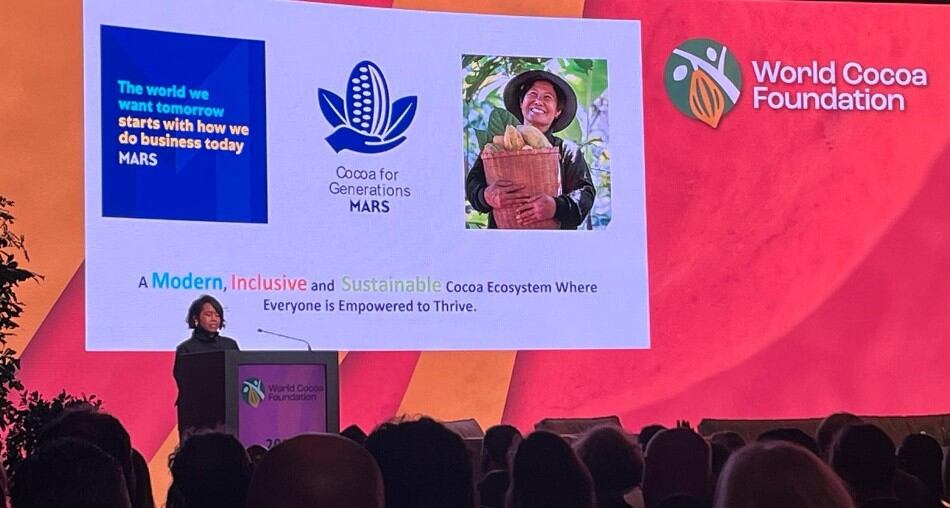
Amber Johnson, Mars Wrigley’s Global Vice President Cocoa, picked up on the collective power of having 450 WCF members under one roof for the first time in 16 months and said: “This is one of the few opportunities we have, as a sector to come together, share our challenges, and our learnings. She also acknowledged the progress made by the industry in intervening months, particularly in addressing deforestation and mapping farms, “but we still have an opportunity to do more to promote areas like reforestation and protection.”
The sector’s shared concern and continued investments are enhancing farmer incomes, which is evident, she said, “but the challenge remains, and we still have an opportunity to achieve a living income across the entire sector in a sustained way.
“Let's bear in mind that the essence of sustainability lies with transcending competition - it is not about us, it’s about the millions of people across the entire supply chain and their wellbeing and the health of our shared environment, which should be the compass guiding our collaborative journey towards a more sustainable future.”
She hoped WCF partners would walk away from this meeting thinking of collective advantage instead of competitive advantage. “That we're focused on understanding how we can pragmatically come together … to enable us to start a new era of bold actions today. A better future for cocoa calls for all of us to work differently,” she said.
Support from the Dutch government
Vincent and Johnson’s remarks galvanized the meeting. They set the tone for two days, which was also supported by the Dutch government, with an address by Pascalle Grotenhuis, Vice Minister for International Cooperation at the Ministry of Foreign Affairs. She agreed with the need for global action to transform the cocoa sector, but she said global action without coordination, strategies, and partnerships would get the industry nowhere.
“Only a few small families in the cocoa sector earn a living income. And benchmarks show that there's still a major gap between real income received and then living income.” She said the Dutch government needs to do more; it fully supports the EUDR, but the industry also needs to do more: “Purchasing practices need to change so that farmers can earn a living income, and the value needs to be distributed fairly among the value chain."
The Partnership Meeting immediately explored the crucial issues affecting the sector by examining cocoa as a commodity and its relationship to international finance followed by a cocoa producers' panel.
Cocoa as a commodity
Andrey Kuleshov, a strategy and development advisor for the Common Fund for Commodities, said cocoa as a commodity will not be immune from an increase in volatility, either on the markets or caused by civil strife in countries … and volatility is toxic for the sustainability of global commodity value chains.
He said the Common Fund for Commodities invest in small and medium enterprises in developing countries to connect the primary producers to global financial markets. "But this money follows the power of international financial markets to come to the primary producer in a way that is not toxic in the way of monetary rewards for the cocoa and other commodities that they supply to the cocoa markets."
Cocoa producers' panel
Dr Kristy Leissle from the African Cocoa Marketplace, moderated the Cocoa Producers Panel that gave a platform to representatives from Brazil, the Dominican Republic, Cote d’Ivoire, and Ghana to to discuss the challenges in their countries. Regarding EUDR, readiness levels differed and were a concern. Still, cocoa yields were roughly the same at around 500kg a hectare despite the unique challenges experienced in growing cocoa in each country.
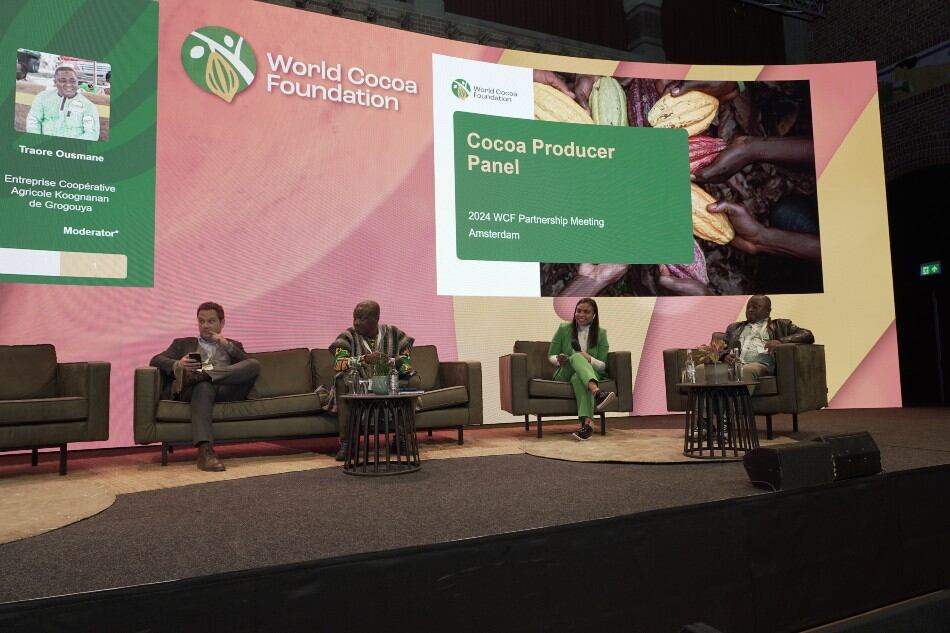
Leissle said that in her experience, the outlook and priorities of the cocoa industry can appear very different … if one is standing in a chocolate factory in Europe or the offices of a multinational confectionery brand to those of the cocoa farmers.
“The realities of these ends of the value chain are not the same because there is such a big distance between the geographical distance and sometimes an ideological difference. It can be difficult for cocoa producers to make their voices heard by stakeholders and the other value chain actors.” She said she welcomed the opportunity to moderate a panel, which, she said, was the first time in her experience that a conference had opened with a panel of cocoa producers.
“We'll put farmer voices and their perspectives at the forefront of our discussion over the next day or two,” she said.
- ConfectioneryNews is the official media partner of the WCF Partnership Meeting.
- Article was amended 7/2/24 as there was an editing error in Pascalle Grotenhuis, Vice Minister for International Cooperation at the Ministry of Foreign Affairs, comment that should have read 'value' chain instead of 'failure' chain: “Purchasing practices need to change so that farmers can earn a living income, and the value needs to be distributed fairly among the value chain."

